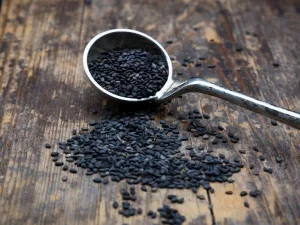Dragon fruit, also called pitahaya or strawberry pear, is a low-calorie tropical fruit recognized for its striking red exterior and sweet, seed-speckled flesh. It provides vitamins, prebiotic fibers, and other healthful compounds.
Its distinctive appearance and reputation as a superfood have made it a favorite among culinary enthusiasts and wellness-minded people.
You don’t need to live in tropical regions to enjoy dragon fruit’s advantages. It’s commonly available fresh or frozen in supermarkets around the globe.
Continue reading to learn 7 health benefits of dragon fruit.

1. Rich in nutrients
Dragon fruit is low in calories yet loaded with important vitamins and minerals. It also offers a meaningful amount of dietary fiber.
Below is a summary of the primary nutrients in a
- Calories: 103
- Protein: 0.6 g
- Fat: 0.2 g
- Carbohydrates: 27.4 g
- Fiber: 5.6 g
- Iron: 0.324 milligrams (mg)
- Magnesium: 12.6 mg
- Vitamin C: 7.7 mg
- Vitamin E: 0.2 mg
You can consult the for suggested daily amounts of these nutrients, which vary by age and sex.
In addition to essential nutrients, dragon fruit contains beneficial plant constituents such as polyphenols, carotenoids, and betacyanins.
2. May help prevent chronic disease
Free radicals are unstable molecules that can damage cells and promote inflammation and disease.
One approach to combat this is consuming foods rich in antioxidants like dragon fruit.
Antioxidants neutralize free radicals, helping to prevent cellular damage and inflammation.
Research indicates that diets high in antioxidants may lower the risk of chronic conditions such as heart disease, cancer, diabetes, and arthritis.
Dragon fruit contains multiple kinds of powerful antioxidants, including vitamin C and carotenoids.
Notably, antioxidants are most effective when obtained from whole foods rather than supplements. In fact, antioxidant supplements can have mixed or harmful effects, and taking them without medical advice is not recommended.
3. High in fiber
Dietary fibers are indigestible carbohydrates that provide a wide range of potential health advantages.
Although fiber is best known for aiding digestion, studies suggest it may also protect against conditions like heart disease and type 2 diabetes and help with weight management.
While additional research is needed, some research also indicates that high-fiber diets could reduce the risk of colon cancer.
No studies directly link dragon fruit to these specific outcomes, but its fiber content can help you reach recommended daily amounts.
Keep in mind that suddenly increasing fiber intake can cause digestive discomfort if your diet has been low in fiber. To prevent stomach issues, raise fiber gradually and drink plenty of water.
Learn more: Can you actually ingest too much fiber?
4. Supports a healthy gut
Your digestive tract hosts roughly 100 trillion varied microorganisms.
Many scientists think this microbial community influences overall health. Human and animal research has linked imbalances in gut bacteria with conditions such as heart disease.
Because dragon fruit contains prebiotic compounds, it may help foster a healthier balance of beneficial bacteria in the gut.
Prebiotics are a type of fiber that encourages the growth of good gut bacteria. While humans can’t digest prebiotics, the microbes in your gut can, using them as fuel and promoting their proliferation.
Regular intake of prebiotics may reduce the risk of intestinal infections and diarrhea by enabling beneficial microbes to outcompete harmful organisms.
Although research on prebiotics is promising, more studies are required to clarify dragon fruit’s specific impact on the human gut.
5. Bolsters the immune system
Your immune defenses depend on several factors, including the quality of your diet.
The vitamin C and carotenoids in dragon fruit may enhance your immune response by shielding white blood cells from damage.
White blood cells fight and eliminate harmful agents, but they are vulnerable to free radical harm.
Vitamin C and carotenoids are strong antioxidants that help neutralize free radicals and protect immune cells from injury.
6. May help raise low iron
Dragon fruit is among the uncommon fresh fruits that supply iron.
Iron is essential for transporting oxygen in the bloodstream and converting food into energy.
Yet many people lack adequate iron. Estimates suggest about 17% of the global population is iron-deficient.
To address low iron, include a range of iron-rich foods in your diet like meats, seafood, legumes, nuts, and fortified cereals. Dragon fruit can be an additional helpful choice.
7. Good source of magnesium
Dragon fruit supplies more magnesium than most fruits. On average, the human body contains of magnesium, roughly one ounce.
Despite appearing small, magnesium plays a vital role in over hundreds of enzyme reactions in the body. It supports tasks like protein synthesis, muscle and nerve function, blood sugar regulation, and blood pressure control.
For instance, it’s involved in processes needed to convert food to energy, contract muscles, build bone, and form DNA.
Further research is necessary, but some evidence suggests that higher magnesium intake may lower the risk of heart disease and other conditions.
How to enjoy dragon fruit
Although the fruit’s thick, leathery rind may seem daunting, preparing dragon fruit is straightforward.
Key is selecting one that’s ripe.
An unripe dragon fruit will look green. Choose a fruit that’s vividly red. A few dark spots are normal, but excessive bruises may mean it’s overripe. Like avocados and kiwis, a ripe dragon fruit should yield slightly to pressure without being mushy.
Here’s an easy way to eat a fresh dragon fruit:
- Slice it lengthwise with a sharp knife.
- Scoop the flesh out with a spoon, or dice it by cutting vertical and horizontal lines into the pulp without slicing the skin. Press on the back of the peel to push out the cubes, and remove them with a spoon or fingers.
- Enjoy it on its own, or add to salads, smoothies, and yogurt.
You can also purchase pre-peeled, cubed dragon fruit in the frozen section of some stores — a handy option for a nutrient-dense snack.
Frequently asked questions
What does dragon fruit do to your body?
While more research is necessary, studies indicate that the antioxidants and nutrients in dragon fruit may help protect against various health problems, potentially aiding blood sugar control and supporting heart, liver, and brain health, as well as possibly lowering the risk of certain cancers.
When is the best time to eat dragon fruit?
Dragon fruit can be eaten at any time of day. It’s generally in season from June through September.
Takeaway
Dragon fruit is a tasty tropical fruit that’s well worth sampling.
It offers delightful flavor, brightens your plate, and provides key nutrients, prebiotic fiber, and beneficial plant compounds—all in a low-calorie portion.
If you want to diversify your fruit choices, dragon fruit is a flavorful option with several potential health advantages.

























Leave a Reply
You must be logged in to post a comment.